Veterinary & Biosecurity
Making vaccines available & accessible to women & other marginalized livestock farmers
Published
3 years agoon
By
Mak Editor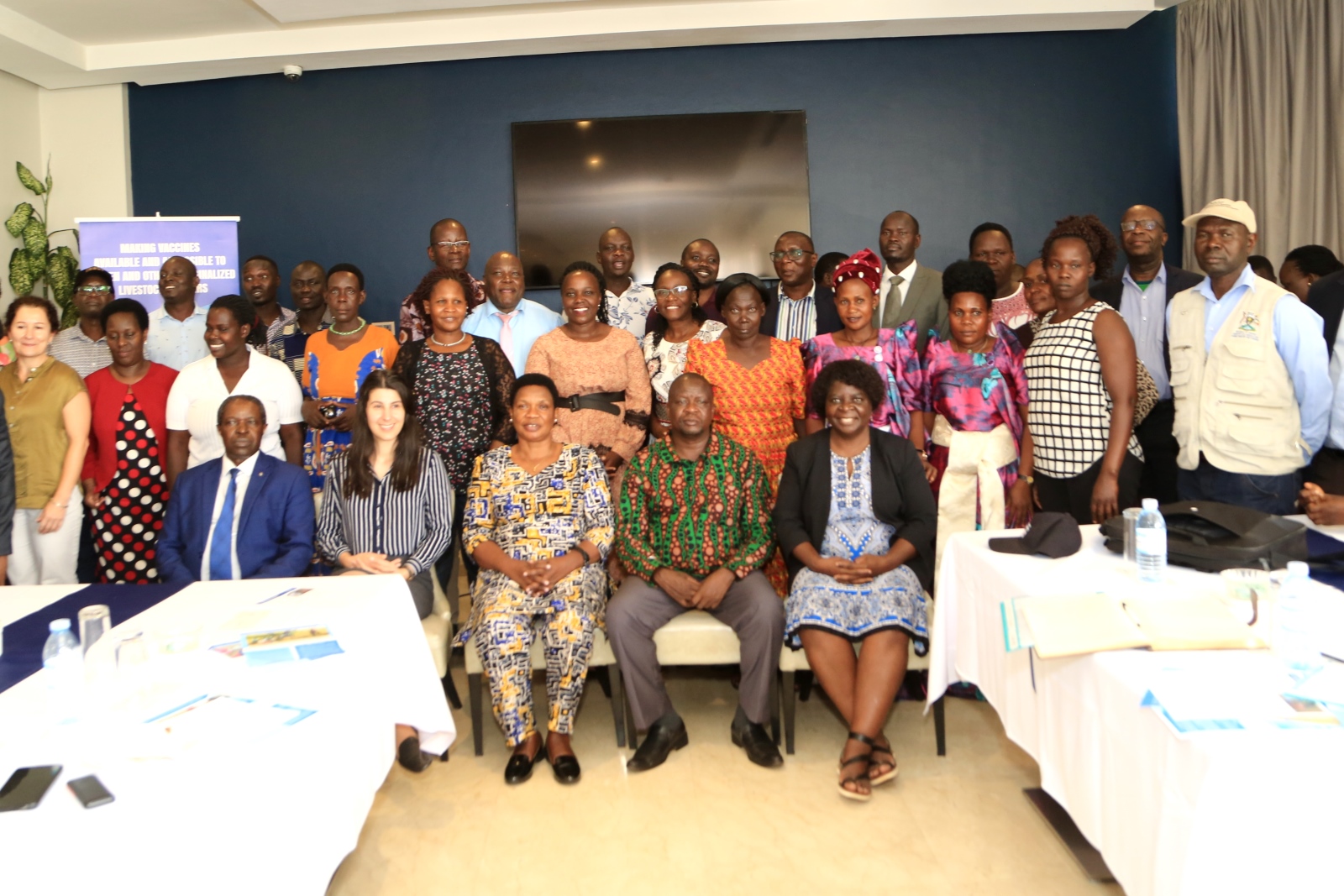
Women in livestock farming in Uganda have been empowered and trained on vaccines access and proper administration for both animals and poultry. This was during a project dubbed the Livestock Vaccine Innovation Fund (LVIF) undertaken to address the barriers faced by women in livestock vaccine systems in Uganda and generating new evidence on how women can better benefit and participate in the vaccination systems.
The Livestock Vaccine Innovation Fund (LVIF) was funded by Canada International Development Research Centre (IDRC), Global Affairs Canada (GAC) and Bill and Melinda Gates Foundation (BMGF) to support the development of affordable livestock vaccines, targeting diseases that affect women and men who are livestock keepers. The project has been implemented through a set of research action based accomplishments including;
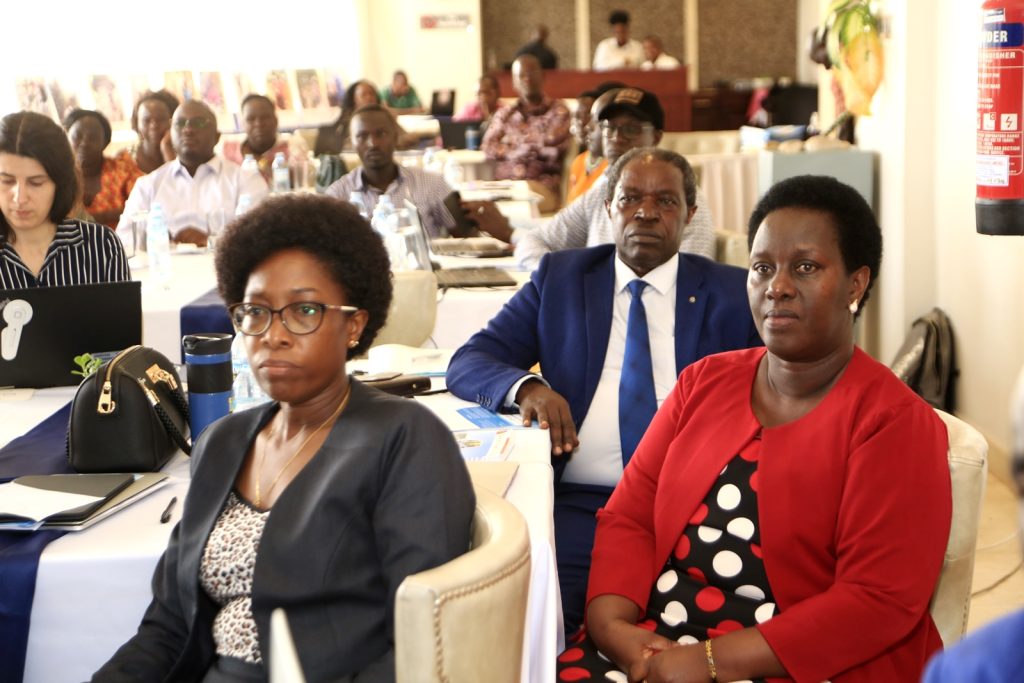
The SHeVax+ research (hearing Their Voices, Action Research to Support Women’s Agency and Empowerment in Livestock Vaccine Distribution, delivery and Use is a partnership between the Cumming School of Veterinary Medicine at Tufts University and the Africa One Health University Network (AFROHUN) together with their implementing partners including Makerere University, University of Nairobi and University of Rwanda. Prof. William Bazeyo is the Chief Executive Officer (CEO) of AFROHUN. The project assessed the state of women’s empowerment and gender parity on the vaccine value chain, identified key entry points among women smallholder farmers and entrepreneurs to contribute to and benefit from livestock vaccines thereby improving livestock production and livelihoods. The project was implemented in Sembabule district in Uganda, Machakos County in Kenya, and Nayagatare district in Rwanda.
Advancing Women’s Participation in Livestock Vaccine Value Chain Nepal, Senegal and Uganda research. Implemented by the University of Florida (UF) in collaboration with Makerere University, the project aimed at increasing women’s use of pest des petits ruminants (PPR) vaccines for their small ruminants in Nepal, Senegal, and Uganda as well as Newcastle Disease vaccines for their poultry in Senegal. Recognizing the fact that there are multiple factors that prevent women from vaccinating their animals, most often related to gender and intersectional issues such as class, ethnicity, disability and geographic location, the project introduced the Gender Intersectional Transformative Approach (GITA) with the aim of working with women livestock owners, all levels of animal health workers and trainers with a transformative mind of opening up spaces to allow full participation in the livestock vaccination value chain. In Uganda, the project was implemented in Karamoja Sub region targeting selected sub counties in four districts of Abim, Amudat, Kotido and Moroto.
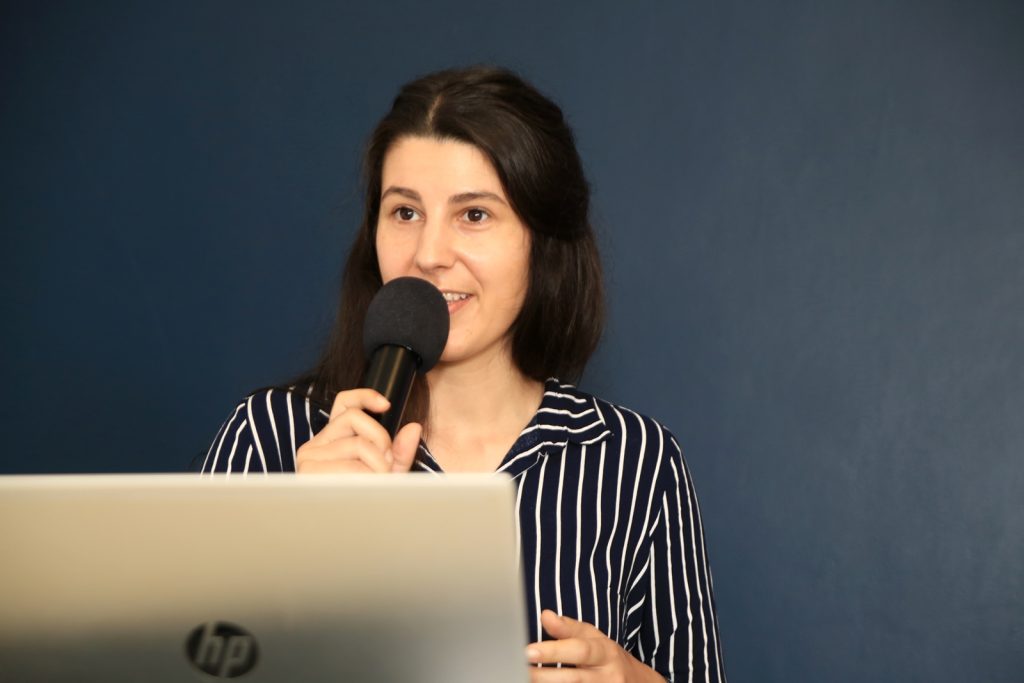
According to Dr. Evelyn Baraké, the Project Officer- IDRC, the Livestock Innovation Fund was initiated to accelerate the development of new vaccines against neglected livestock diseases, increase the efficacy, marketability and use of existing livestock vaccines and fostering effective partnerships between vaccine researchers and public and private sector actors. The project also focused on animal diseases posing the greatest risk to poor livestock keepers in Sub-Saharan Africa, South and Southeast Asia.
“Our program on Women empowerment and Livestock Vaccines has enhanced the mapping exercise on livestock vaccine value chains. Through this program, we have been able to identify barriers preventing women from accessing vaccines and sought out the effective interventions to increase the demand for vaccines and their use,” she noted.
Dr. Evelyn Baraké also mentioned that IDRC has utilized the programme approach to define and measure changes in gender norms and empowerment hence fostering gender transformative impact.
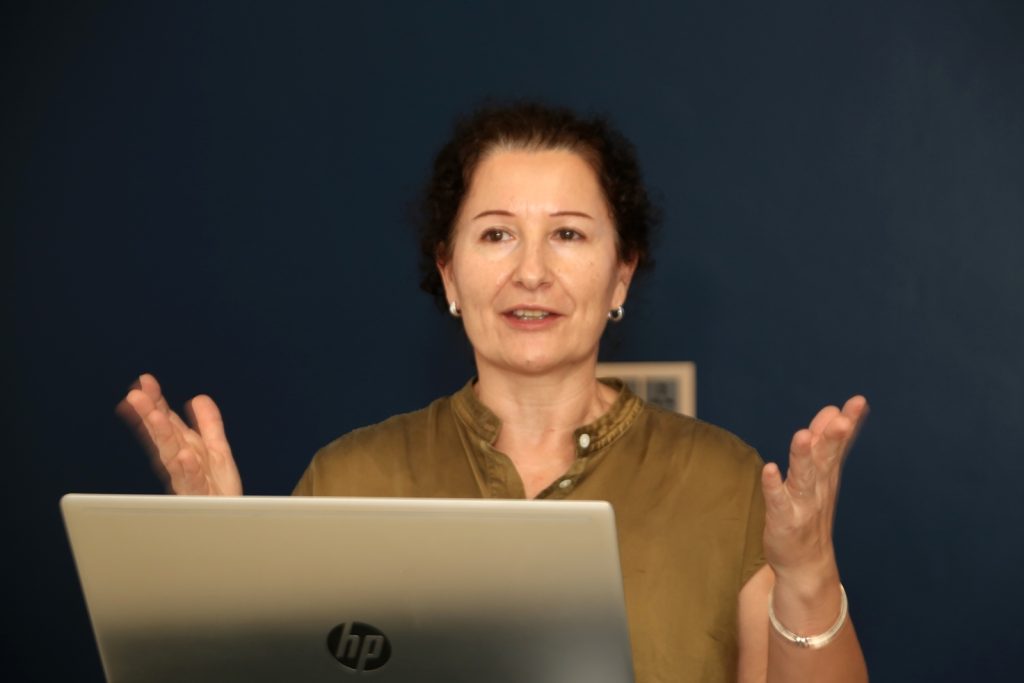
Majority of rural households in low developing countries are engaged in livestock rearing. This activity is undertaken by both women and men in most cases who are predominantly agro-pastoral smallholders within mixed farming systems. According to Dr. Nargiza Ludgate- the Co-Principal Investigator of the project; Advancing Women’s participation in livestock vaccine value chain, gender and attitudes of animal health service providers can affect their veterinary practice and quality of care. Therefore, developing an understanding of how gender and perceptions can influence veterinary practice is essential to improve the reach and quality of service delivery.
In Uganda, women are often left out of agricultural extension services and technical support. This is because household power imbalances play a key role in animal health services. In the livestock vaccine value chain, women and other marginalized groups such as minority ethnic groups, the elderly and persons living with dis-abilities have less access than men to key inputs such vaccines as well as limited ability to influence decision-making on vaccination and animal health within the households. In addition, women tend to miss out on veterinary services due to the deep- rooted social- cultural biases at household and community levels.
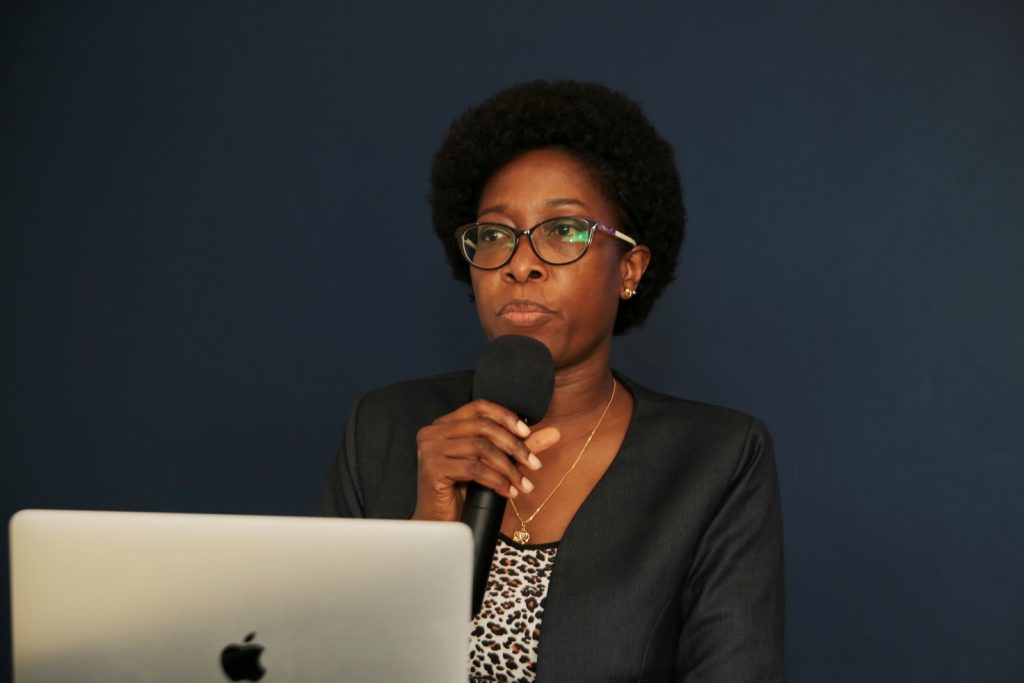
“The unvaccinated animals of women and other marginalized groups are at a higher risk of infection and can spread diseases easily to other livestock. This, consequently undermines community level and global diseases control interventions, such as eradication of peste des petis ruminants by 2030,” noted Agnes Yawe, Head of Grants and Resource Mobilization/ Partnerships, AFROHUN.
Yawe also highlighted the bigger gender gap that has for long existed in the current veterinary curriculum in Uganda when she said, “this curriculum is set by the National Council of Higher Education (NCHE) and must meet the World Health Organization (WHO) for Animal Health standards for veterinarians or para- veterinarians. However, the primary focus of the current curriculum is directed to scientific and technical knowledge or the “hard skills” with little or no space for soft “soft skills” such as gender responsive communication, empathic listening, effective communication and community engagement.”
She further noted the need to integrate gender concepts in refresher courses and workshops for veterinarians and other animal health service providers to enrich their understanding on how best to reach out to women and other marginalized groups.
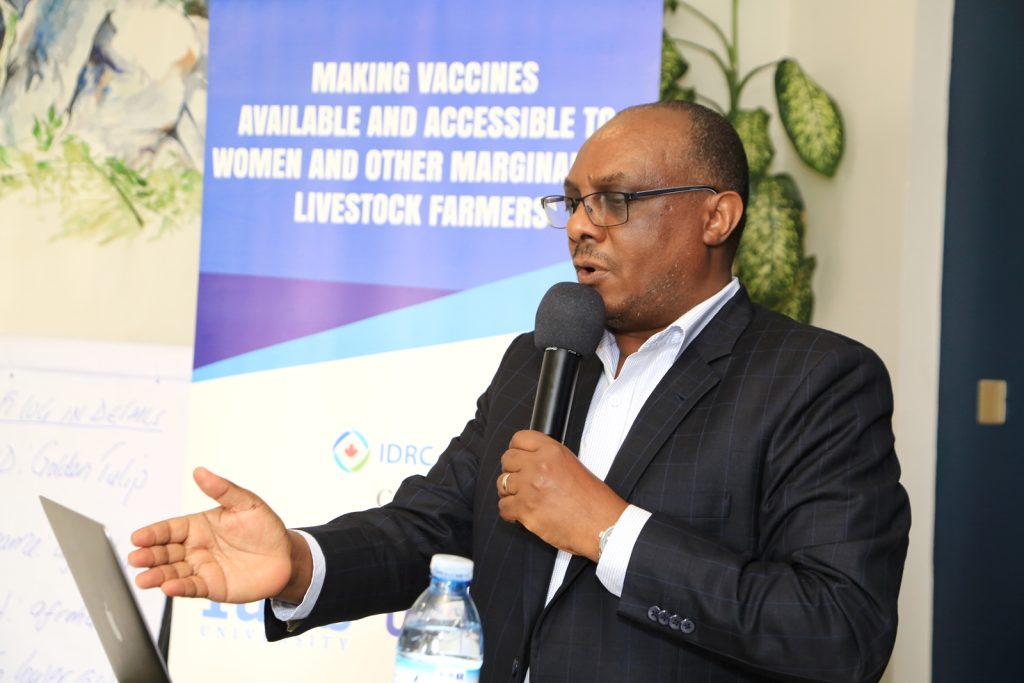
Prof. Anthony Mugisha, SheVax Country Lead and Co-Principal Investigator in Uganda highlighted the need to increase women’s access to communication tools as a way of enhancing their access to information.
“Women’s limited access to mobile phones and community networks that pass on information also means that they often miss out on the messages related to animal health campaigns. Additionally, those livestock keepers (women and men) who are poor, elderly or living with disabilities or belong to an ethnic group such as the Tepeth who live far away from the community centres on the slopes of Mount Moroto are always left out by veterinary extension agents,” he said.
On Monday 5th March 2023, a multi-stakeholders meeting was convened at Golden Tulip in Kampala, Uganda to; –
- Engage key stakeholders in the livestock vaccine value chain
- Showcase promising approaches for gender responsive and inclusive livestock vaccine value chain
- Disseminate research findings and policy recommendations with key stakeholders
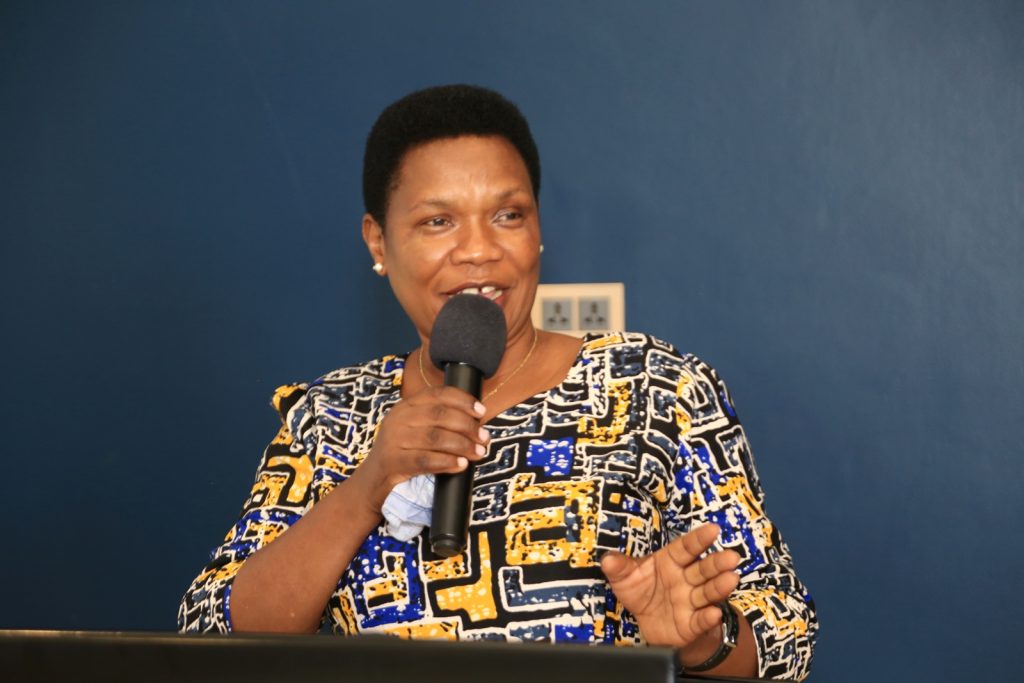
The meeting was officially graced by Hon. Janet Akech Okori-moe, Woman Member of Parliament of Abim district and the Chairperson Agriculture committee of Parliament of Uganda and attended by livestock farmers, policy Makers, research and scientists and media.
Speaking at the meeting, Hon. Janet Akech Okori-Moe said that small ruminants such as goats, sheep and poultry form a bigger part of livelihood enterprise and provide key benefits to most smallholder farmers especially women in the developing countries including Uganda. She also noted that whereas this is so, the animal value chain right from production up to the end point of selling the product quite often leaves out women and other vulnerable groups.
“It is estimated globally that approximately 262 million people at the worst poor keep livestock for food security and income generation and women represent two thirds of this total population. Women being smallholder farmers, face serious challenges and therefore the need to support them, build their confidence in a patriarchal society and allow their participation in matters that affect them through equipping them with information and mindset change training sessions,” she noted.
“Available record also shows that women have poor access to vaccines for the few livestock they manage. They are believed to be good animal care takers compared to their male counter parts hence strategies are needed to ensure that women’s ability to participate and benefit from the vaccine value chains is realized,” she added.
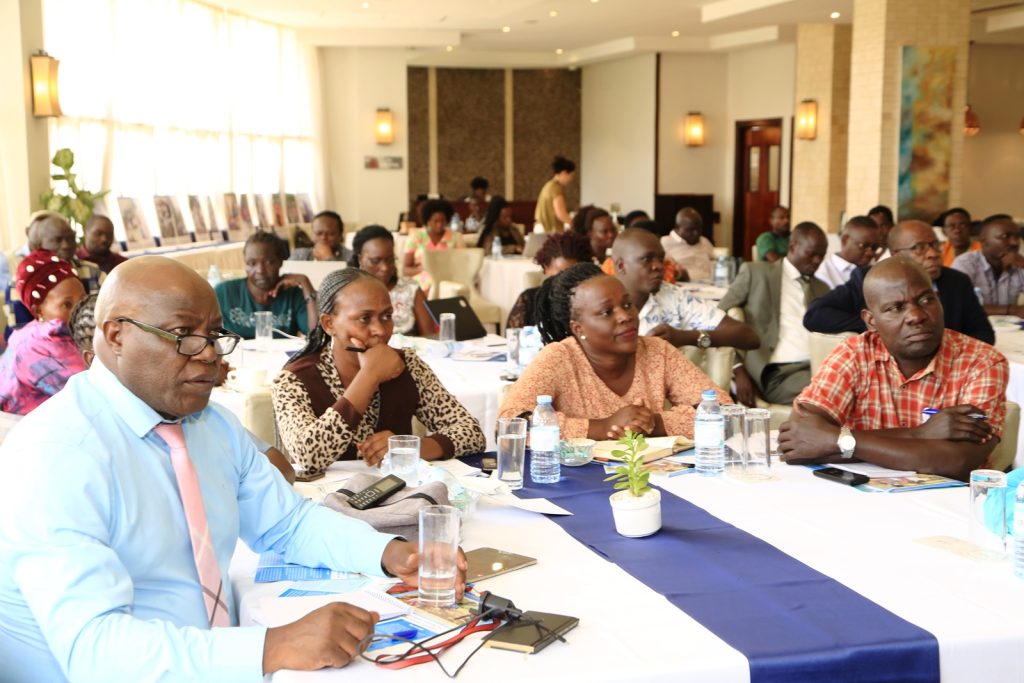
With reference to the existing village health teams, Hon. Janet Akech Okori-Moe called for the consideration for formation of the village animal health teams to attend to challenges affecting livestock farmers in Uganda. She as well urged policymakers to enhance their actions and discussions that support the need to address animal health challenges in Uganda.
Highlighting government support towards livestock farming in Uganda, Hon. Akech Okori-Moe informed participants of the recently launched government Scientific Vaccine Trials that are currently being tested in five centres in Uganda including two prison farms. She acknowledged the tremendous work done by experts from Makerere University, School of Veterinary Medicine at Tufts University, the University of Florida (UF), and the Africa One Health University Network (AFROHUN) through research to empower more women in livestock farming.
In the same spirit, the Honourable Member of Parliament thanked Canada International Development Research Centre (IDRC), Global Affairs Canada (GAC) and Bill and Melinda Gates Foundation (BMGF) for supporting programmmes tailored at addressing dilemmas surrounding animal health in Uganda.
“Thank you for building confidence in women. With your support, their voices are being heard, their actions are being felt, their participation is being noticed in animal health promotion and I pray that this research is replicated with resources and time allowing to other equally deserving areas,” she said.
The project success stories
According to Dr. Hellen Amuguni, the Principal Investigator of Shevax project, Dr. Hellen Amuguni, the project was able to;-
- Train 24 Animal Health Service Providers and well quipped to serve 140,000 households.
- Over 1500 people have received animal health training.
- 1,200 Vaxxer calendars have been disseminated.
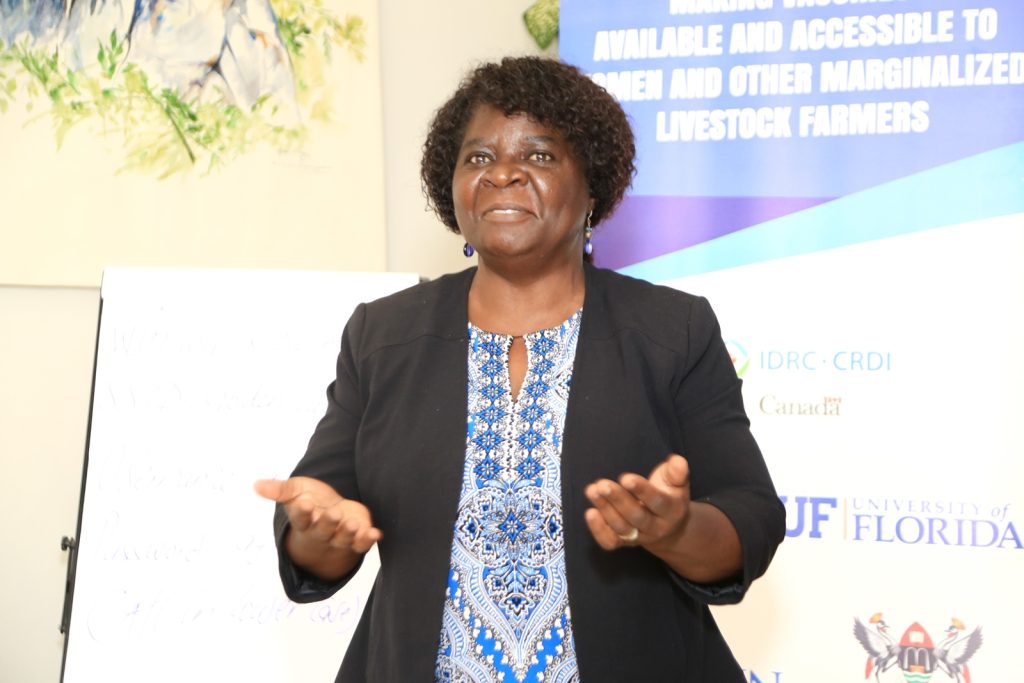
She acknowledged the projects efforts to equip farmers with solar powered fridges, vaccine kits and trainings on how and when to access and administer the vaccines to animals and poultry.
Three policy briefs on making vaccines available and accessible to women and marginalized livestock farmers; Gender-responsive and inclusive veterinary extension for health animals, reduced poverty and empowered women; and Gender and social inclusion training for veterinary animal health services providers were developed and shared to key stakeholders.
The project also facilitated the development of IEC materials in form of posters and comic books written and translated in the local languages of the communities that were engaged during the project implementation process.
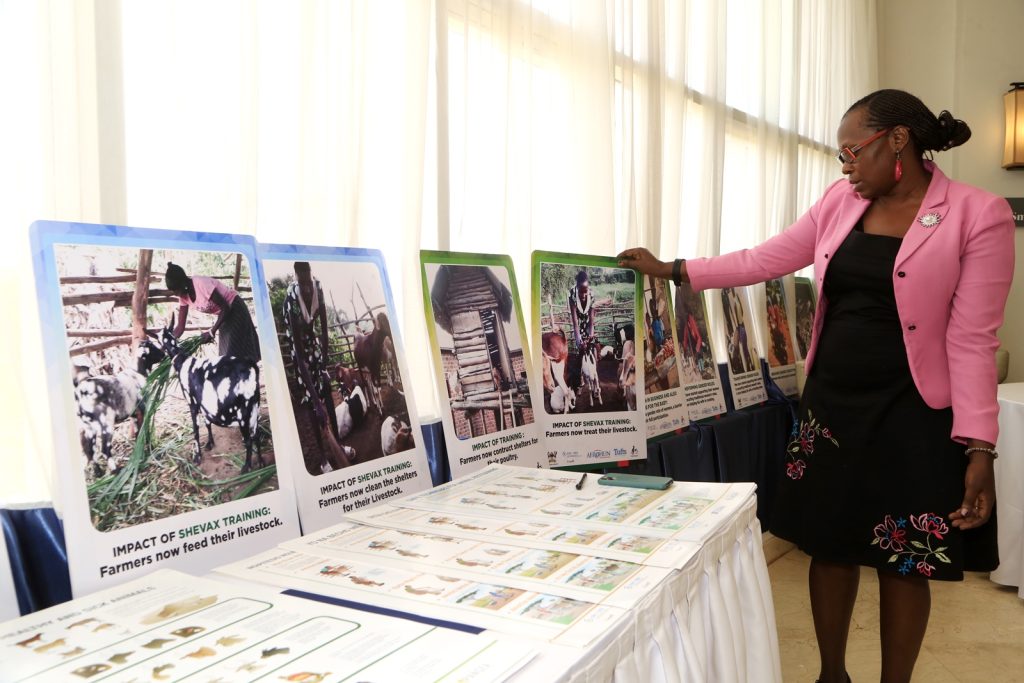
Women were also trained in basic skills in photography as a way of expressing themselves, tell their stories and enhancing their voices on livestock farming. In seeking to transform the veterinary extension services to become more gender aware, responsive and inclusive, the team recommended the following:
- Putting gender-inclusive livestock policies into practice through actual procedures or processes to improve vaccination programs
- Fostering collaborations between animal health technical providers and community development service providers to reach stakeholders who are left behind
- Gender responsiveness of service provision should be an integral part of animal health technical trainings
- Including women along the animal and poultry Vaccine Value Chain (VVC) improves the efficacy and efficiency of vaccination programs by reaching underserved smallholders
- Government and private Animal Health Service Providers (AHSPs) need to recognize that socio-cultural issues at household and community level prevent women and other marginalized small holders from using and engaging as providers of livestock vaccine services
- Public- private collaboration within the livestock vaccine value chain needs committed leadership from government agencies and relevant departments
- Investing in integrating gender knowledge and communication skills into training and curriculum for veterinarians and animal service providers
- Encouraging women and marginalized groups to become animal health service providers
- Ensuring that Community Animal Health Workers (CAHWs) trainings follow a competence- based learning framework, enriched with gender and soft skills modules and offered as refresher courses
- Strengthening women, the poor, elderly and persons living with disabilities livestock keepers’ access to critical animal health welfare services, such as veterinary care, drugs and information and technology
- Investing in gender transformative approaches in veterinary extension training
- Sensitizing community leaders, CAHWs and other key community stakeholders
You may like
-


Makerere Launches Scholarly Guide, Calls for Increased Research, Publication and Innovation in Africa
-
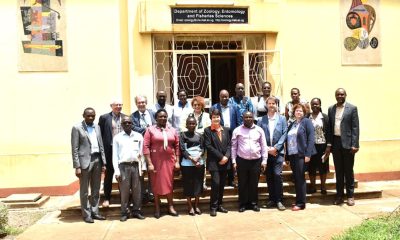

BOKU University Charts New Collaboration Strategies with Mak’s Department of Zoology, Entomology & Fisheries Sciences
-


When Birth Becomes the Most Dangerous Moment, Wanduru & the Work of Making Labour Safer
-
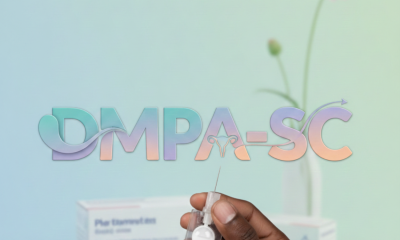

Study Alert: Power in Her Hands; Why Self-Injectable Contraception May Be a Game Changer for Women’s Agency in Uganda
-
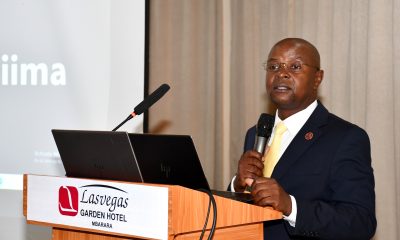

Building Skills for Better Public Investments: PIM Centre Trains Public Sector Economists
-


How Jimmy Osuret Turned Childhood Trauma into Evidence for Safer School Crossings
Veterinary & Biosecurity
CoVAB Newsletter Oct-Dec 2025
Published
2 months agoon
December 4, 2025By
Mak Editor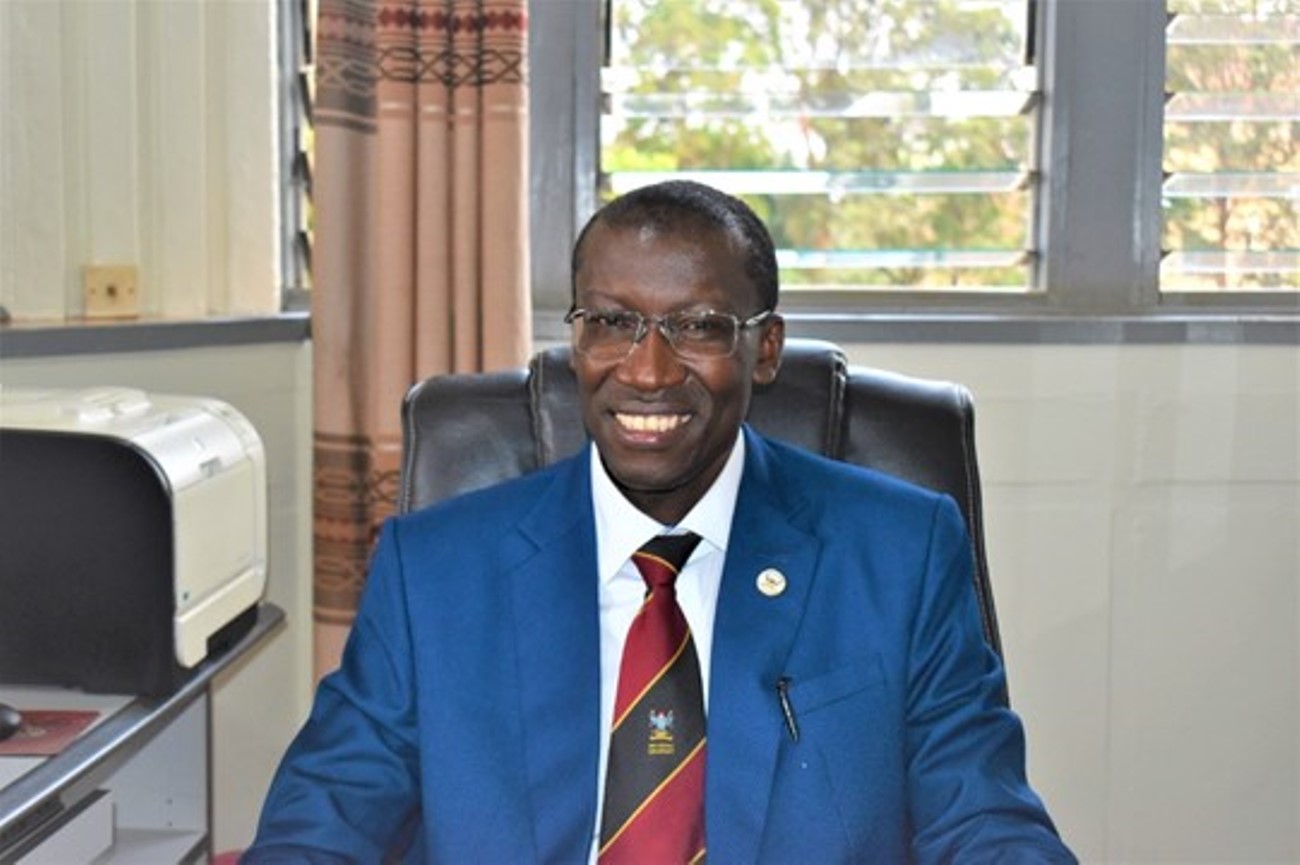
It is my pleasure to welcome you to this edition of the CoVAB Newsletter, October –December 2025. The College of Veterinary Medicine, Animal Resources and Biosecurity (CoVAB) at Makerere University continues to stand at the forefront of training, research, and innovation in veterinary sciences, animal resources, and biosecurity. Since its establishment over 50 year ago, from the Faculty of Veterinary Medicine, CoVAB has evolved into a center of excellence dedicated to nurturing skilled professionals who contribute to healthier communities, sustainable livelihoods, and national development.
This newsletter highlights a few of our outputs and efforts in advancing veterinary medicine and animal production to strengthening biosecurity and public health. Our programs are aligned with Uganda’s Vision 2040 and the broader goal of transforming challenges into opportunities for prosperity.
We celebrate the collective efforts of our students, faculty, industry partners, and government stakeholders who continue to support our mission.
Prof. Frank N. Mwiine
PRINCIPAL
Veterinary & Biosecurity
Makerere University and Partners Celebrate INSSPIRE Project Achievements in Evidence-Based Higher Education on Food Systems and Climate Action
Published
3 months agoon
November 20, 2025
By Harriet Musinguzi & Jacinta Nakaye
INSSPIRE, a flagship project housed at the College of Veterinary Medicine, Animal Resources and Biosecurity (CoVAB), has successfully concluded its three-year implementation journey with a final workshop held on Tuesday, 18th November 2025, at the Imperial Royale Hotel. The workshop brought together key stakeholders from leading universities across Europe and Africa to reflect on the project’s achievements, share lessons learned, and explore opportunities for future collaboration.
Over the past three years, the INSSPIRE Project has made significant strides in advancing research, innovation, and capacity-building, particularly in the areas of food systems and climate action. Through its initiatives, the project has contributed to strengthening academic programs and aligning them more closely with societal needs and the evolving job market.
Some of the notable achievements of the INSSPIRE Project include the comprehensive review and enrichment of the curriculum, ensuring that learning is not only academically rigorous but also practically relevant to societal needs and the evolving job market. In addition, the introduction of real-life learning labs has provided students with invaluable hands-on experience, enabling them to engage directly with community challenges and apply their knowledge in practical, impactful ways. The project has also pioneered the use of Collaborative Online International Learning (COIL), linking students with peers from other countries to foster cross-cultural exchange and collaborative problem-solving. This innovative approach has strengthened the connection between academia and society, equipping graduates to become solution-oriented leaders in addressing pressing global issues such as food systems and climate action.

Prof. Barnabas Nawangwe, the Vice Chancellor of Makerere University, was represented at the conference by Prof. Julius Kikoma, Director of Graduate Training. Delivering remarks on behalf of the Vice Chancellor, Prof. Kikoma commended the remarkable achievements realized through the strong partnership of multiple universities under the INSSPIRE initiative. He underscored the conference theme, “Advancing Evidence-Based and Inclusive Education for Food Systems and Climate Action,” as a powerful reflection of the project’s commitment to tackling global challenges through innovation, collaboration, and shared learning.
Prof. Nawangwe noted that the INSSPIRE Project, centered on innovation for sustainability and societal relevance, has successfully brought together universities from the Netherlands, Spain, Slovenia, Kenya, Uganda, Benin, and South Africa. Within this collaborative ecosystem, institutions have reimagined higher education to make it more inclusive, experiential, and responsive to pressing challenges such as food systems transformation and climate change.
Nawangwe noted that this transformation comes at a critical time when Africa faces immense challenges in food security and climate change. Uganda remains highly vulnerable, with floods and other climate shocks severely affecting communities and livelihoods. He emphasized that food systems are under pressure from rapid population growth, unsustainable practices, and environmental degradation, while climate change is already impacting nutrition and resilience. Universities like Makerere must rise to this challenge, he said, and that through initiatives like the INSSPIRE Project, Makerere University joined regional and international partners to generate evidence, influence policy, and drive innovation though solutions generated by students, researchers, and communities.
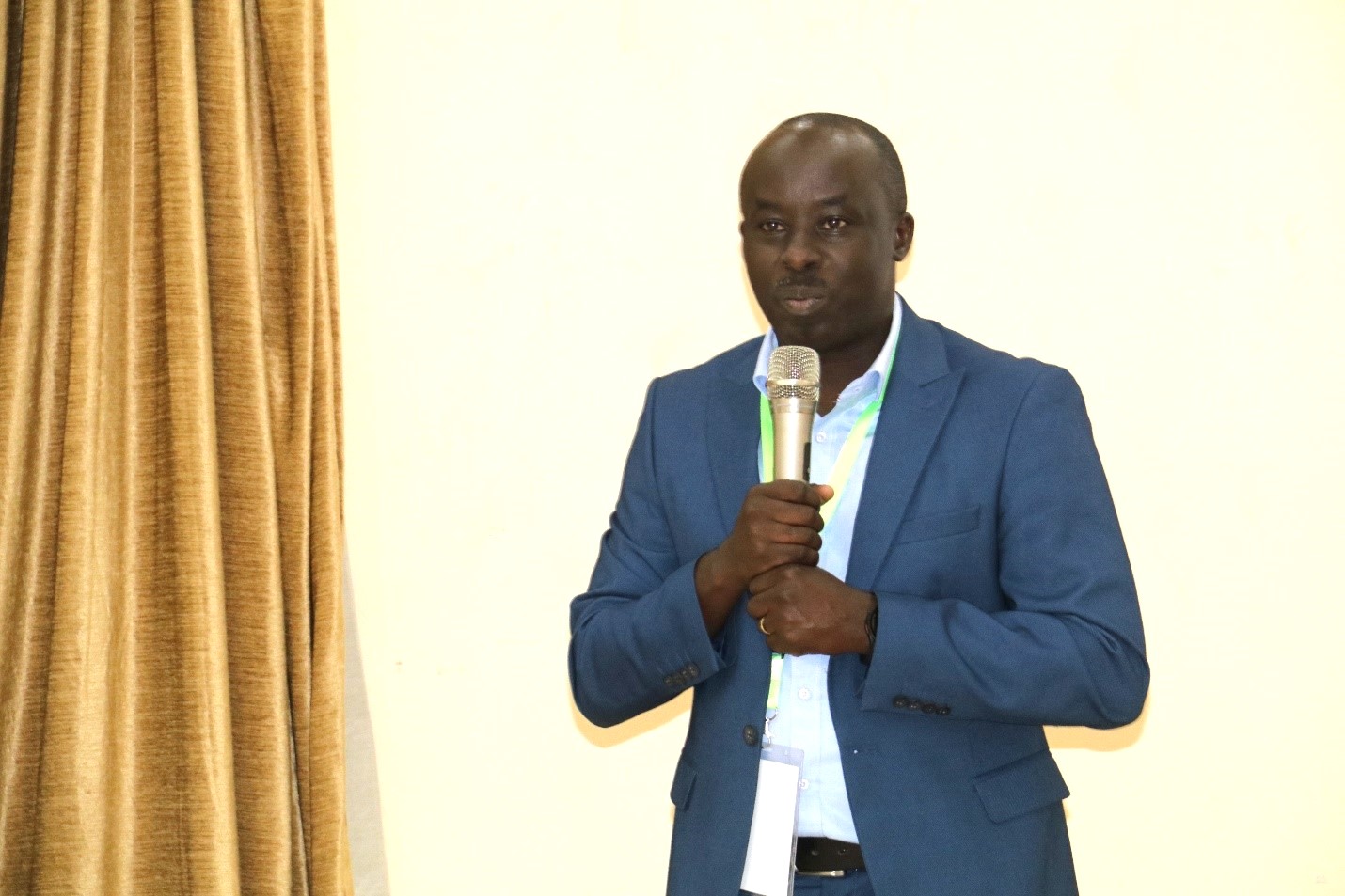
The Vice Chancellor expressed gratitude to Vrije Universiteit Amsterdam, the project’s lead institution, for fostering collaboration that has strengthened long-term partnerships between Makerere and universities in Europe and Africa. He praised this cooperation as a model of global academic partnership, where learning flows both ways and innovation thrives in diversity. He also thanked Erasmus+, the European Union, RUFORUM, FAO, national agencies, and research institutions for their support. Special recognition was given to CoVAB for providing an enabling environment, and to the dedicated Makerere INSSPIRE team led by Dr. Charles Drago Kato, whose leadership has been central to the project’s success.

Prof. Frank Norbert Mwiine, Principal CoVAB expressed the commitment of the college leadership in moving the INSSPIRE innovations forward, as demonstrated in the innovations in the department of Livestock resources and the continuous development of staff to broaden the teaching of these courses. He said the college would remain part of the network and appreciated INSSPIRE for the capacity-building initiatives for the staff of the college especially in the new pedagogical methodologies like the real-life lab.
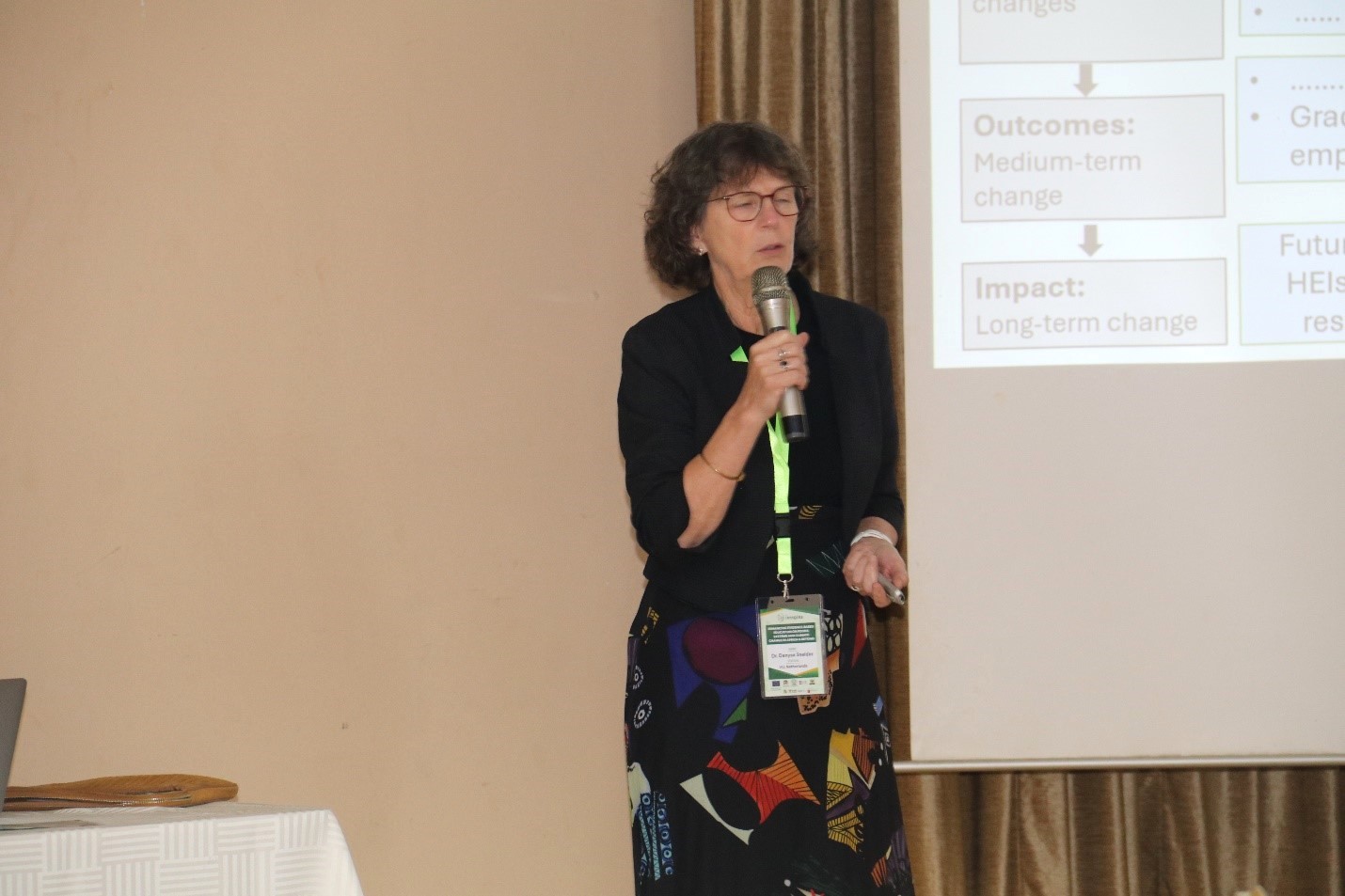
Dr. Denyse Snelder from VU Amsterdam gave a broad overview of the project activities they engaged in, including the capacity development on evidence-based and inclusive education, strengthening the university to community collaboration, and inter-university collaborations. She highlighted the key achievements realized, which include sixty lecturers actively engaged, 850 students reached through enriched courses, Five Hundred community stakeholders engaged, establishment of community practice with Eighteen Universities in Africa and Europe under the umbrella, South to South and triangular cooperation.

The INSSPIRE Project aimed to prepare students in higher education for labor market success by equipping them with the knowledge and skills needed to drive food systems transformation and adapt to climate change, thereby contributing to sustainable growth.
Veterinary & Biosecurity
Urban Farming & Climate-Smart Practices: Makerere Researchers Explore Innovations at Kyakuwa Farm
Published
3 months agoon
November 17, 2025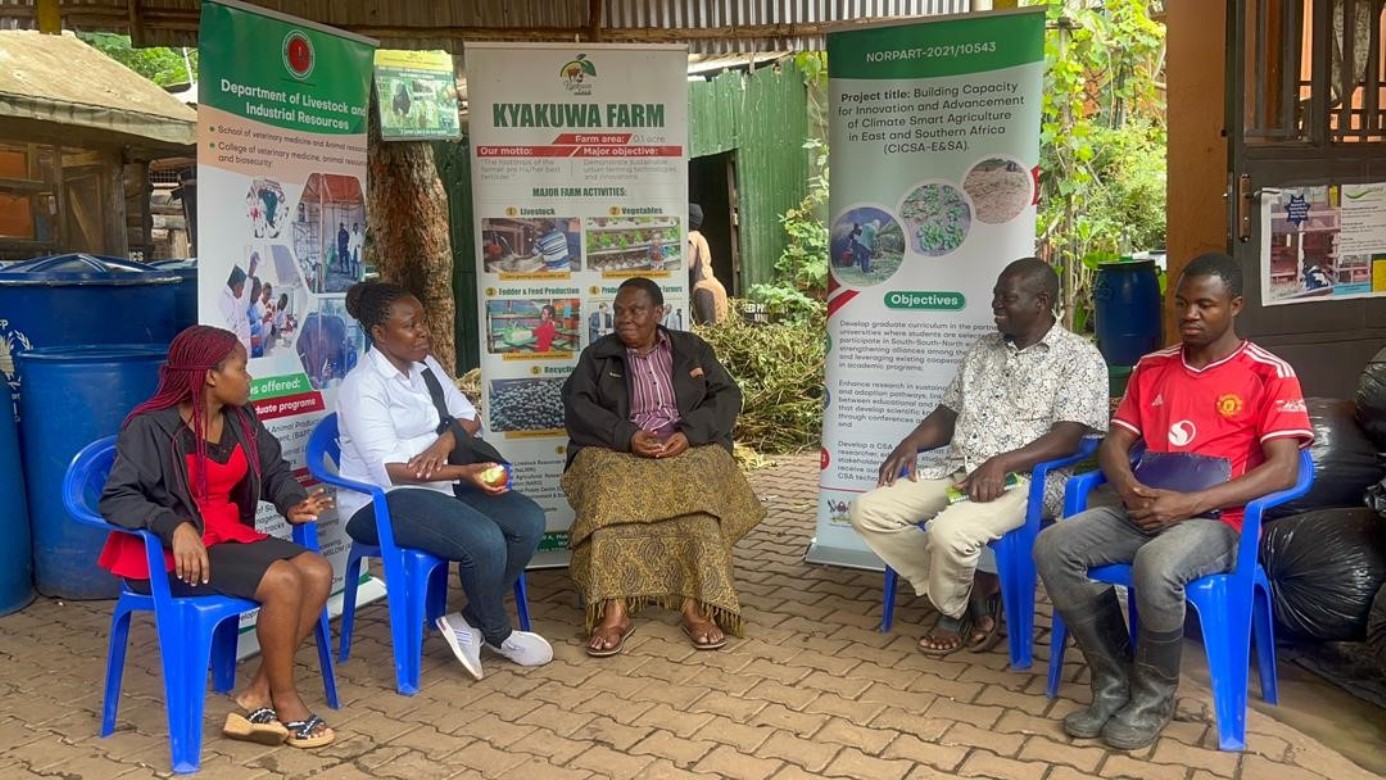
A team of scientists under the collaborative research project “Building Capacity for Innovation and Advancement of Climate Smart Agriculture in East and Southern Africa (CICSA-E&SA)” recently visited Kyakuwa Farm, a model site for urban farming innovations. The visit provided valuable insights into practical climate-smart farming technologies that can strengthen resilience and reduce emissions in urban and peri-urban livestock systems.
The Climate-Smart Agriculture project is led by Makerere University in partnership with the Norwegian University of Life Sciences (Norway), Maseno University (Kenya), LUANAR, and DARS (Malawi), with funding from the Norwegian Agency for International Cooperation and Quality Enhancement in Higher Education (Diku). One of its objectives is to develop a Climate-Smart Agriculture (CSA) Platform to bring together key stakeholders to share experiences, promote proven CSA technologies, and build farmer resilience while minimizing greenhouse gas emissions.
The visit was led by Principal Investigator Dr. Nampanzira Dorothy Kalule from the Department of Livestock and Industrial Resources at the College of Veterinary Medicine, Animal Resources, and Biosecurity (CoVAB), Makerere University. She was joined by other scientists, including Prof. Vincent Muwanika, whose combined expertise enriched the engagement at Kyakuwa Farm. Together, the delegation emphasized Makerere University’s dedication to promoting urban farming and climate-smart agriculture through collaborative learning and knowledge exchange.
While at the farm, the scientists witnessed a number of climate-smart innovations that reinforce the sustainability of the Kyakuwa dairy system. These included silage made from excess sweet potato vines, hay produced from Paspalum grass during compound slashing, and hydroponic fodder cultivated as a nutrient-rich supplement. To address the persistent challenge of flies, the farm applies diatomaceous earth, an organic insecticide, both in the environment and mixed with feed. This integrated approach, they learned, enhanced animal nutrition, improved herd health, and maintained environmental hygiene.
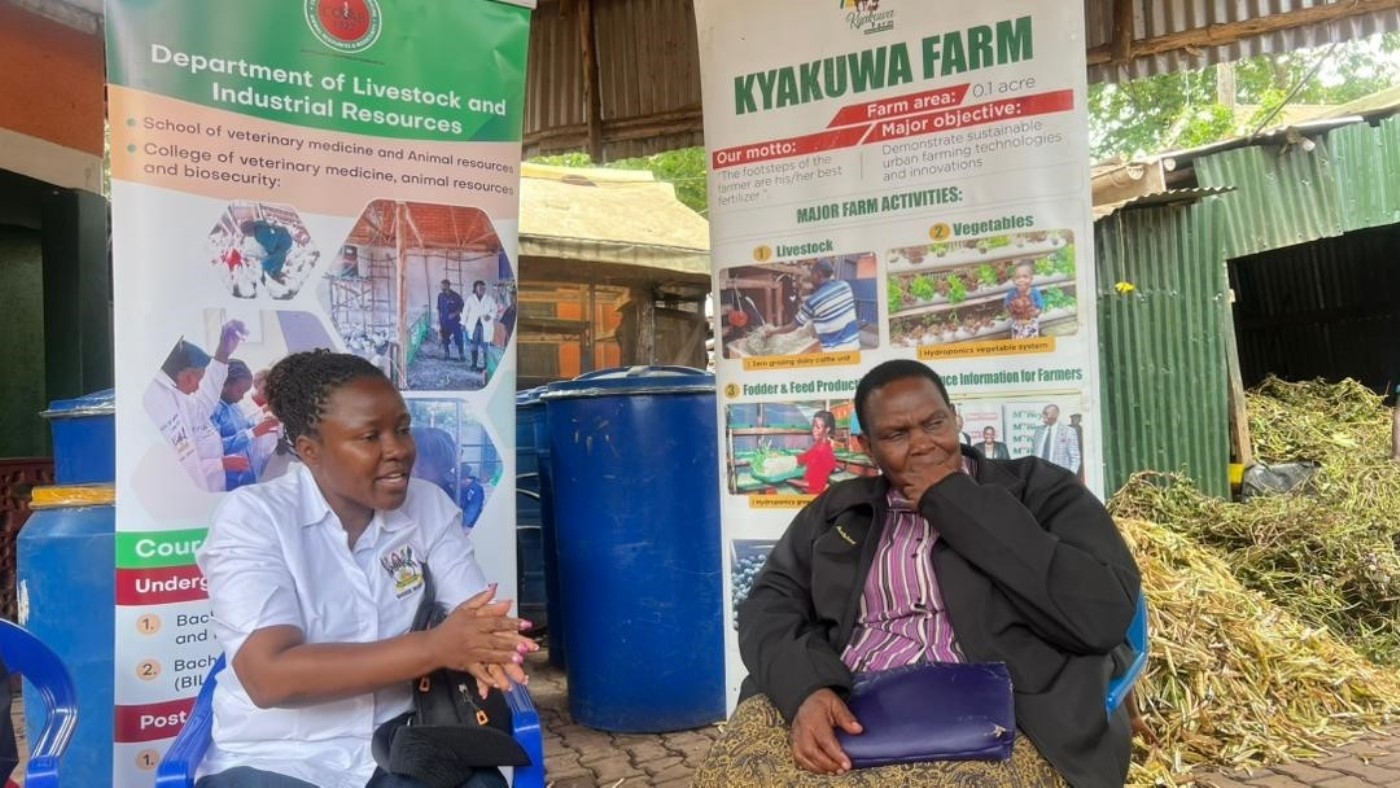
Prof. Jolly M. L. Kabirizi, Executive Director of Kyakuwa Farm and animal research scientist at Valley University of Science and Technology, welcomed the Makerere University team. She showcased her sustainable urban farming model, highlighting dairy production supported by innovative feed, waste management, and climate-smart practices that reduce costs, empower youth, and promote community engagement. The farm places dairy production at its core, integrating innovative feed and waste-management practices that embody climate-smart agriculture. These strategies enhance productivity, optimize resource utilization, and minimize environmental impact, making the farm a replicable model for sustainable urban farming.
According to the scientists, Prof. Kabirizi’s standout innovation is her concept of “turning waste into wealth.” Instead of relying mainly on elephant grass like many dairy farmers, she introduced the use of assorted organic market waste as a sustainable feed source. By training vendors in waste recovery, she incorporates bean pods, sweet potato vines, and pineapple residues into her feeding program. These unconventional resources now form a major part of her dairy system, cutting feed costs, improving sustainability, and reducing organic waste in urban markets.
Prof. Kabirizi complements her waste-to-feed innovations with sustainable feeding technologies that reinforce Kyakuwa Farm’s resilience. The farmer produces silage from surplus sweet potato vines, hay from Paspalum grass during compound slashing, and hydroponic fodder as a nutrient-rich supplement. To tackle the challenge of flies, Kabirizi said she applies diatomaceous earth organically in both the environment and feed. This integrated system boosts animal nutrition, strengthens herd health, and maintains environmental hygiene, showcasing climate-smart agriculture in action.
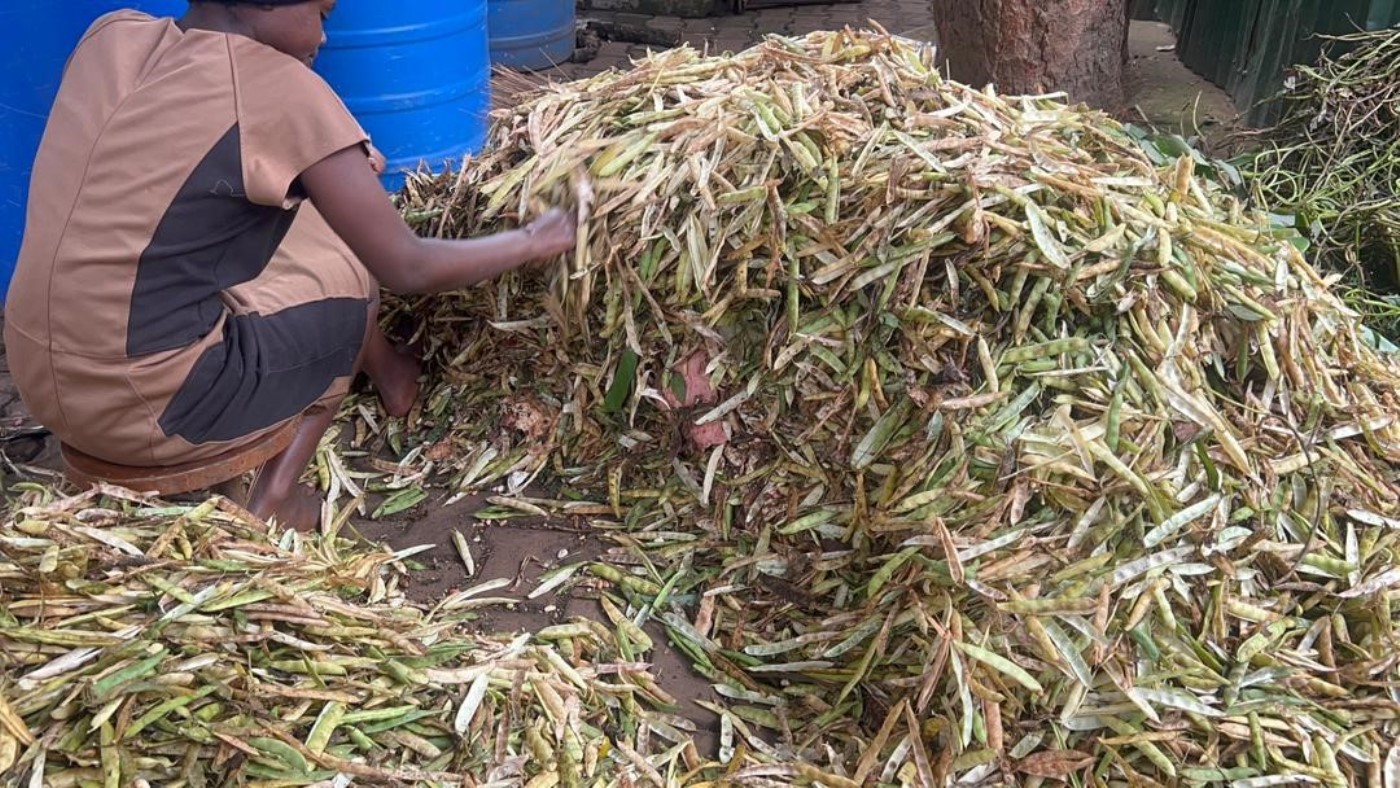
Kyakuwa Farm highlights a climate-smart use of manure by transforming it into a valuable energy resource. Through solar drying, manure is converted into charcoal briquettes that offer households a cleaner, affordable alternative to firewood. This innovation reduces reliance on traditional fuels, eases pressure on forests, and integrates renewable energy into livestock management, showcasing how circular resource use strengthens sustainability and climate resilience in urban farming. In her closing remarks, after successful deliberations with the scientists, Prof. Kabirizi urged the visiting scientists to champion early retirement planning among farmers, drawing on her own rewarding retirement shaped by community training and mentorship. She has empowered households within and beyond Wakiso District through skills in urban dairy management, climate-smart feeding, and value addition.
Trending
-

 General2 weeks ago
General2 weeks agoCall for Applications: Admission to Postgraduate Programmes 2026/2027
-

 Natural Sciences2 weeks ago
Natural Sciences2 weeks agoSimon Mungudit: Mak’s Best Performing Male Science Student & Rising Star in Petroleum Geoscience
-

 Agriculture & Environment1 week ago
Agriculture & Environment1 week agoFrom Adversity to Excellence: The Inspiring Journey of Makerere’s Best Science Student, Esther Ziribaggwa
-

 Health2 weeks ago
Health2 weeks agoCall For Applications: MakNCD Masters and PhD Training Opportunities
-

 General6 days ago
General6 days agoAptitude Exam (Paper 1) Results for the Mature Age Entry Scheme 2026/2027
